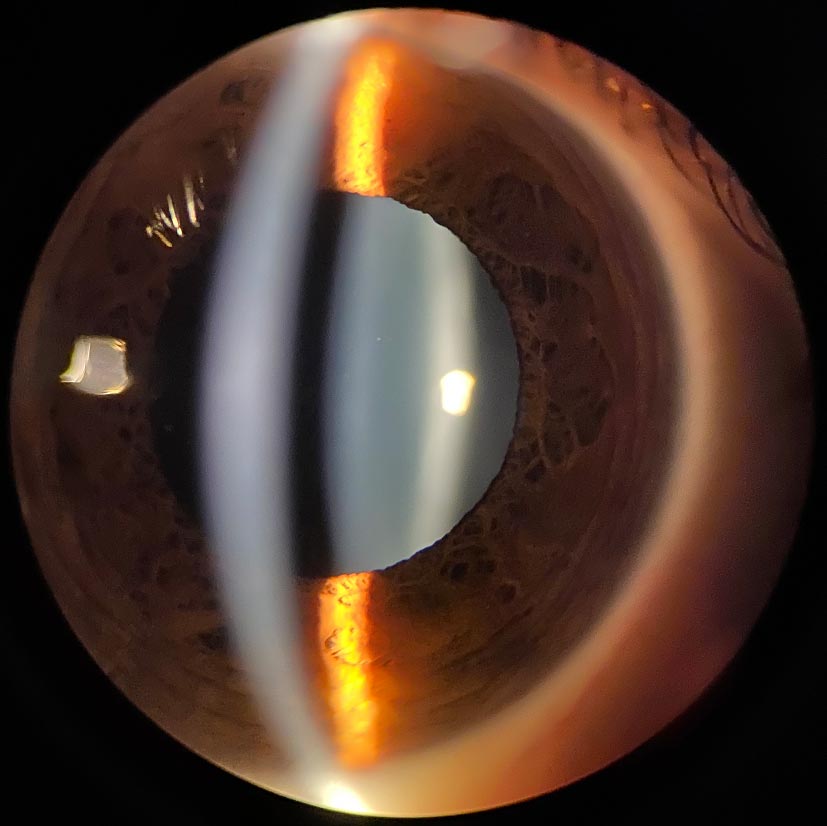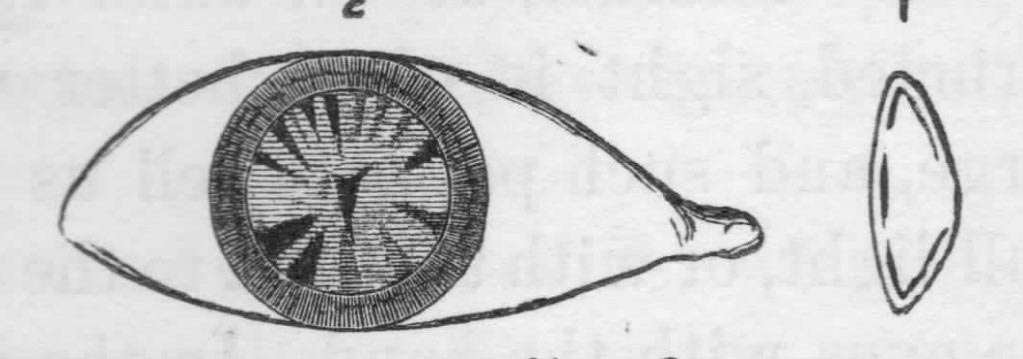Do I need cataract surgery? Probably not, but you might want it anyway.
Very few people need cataract surgery to prevent irreversible blindness. Examples of these people are infants born with congenital cataracts that prevent vision development and adults with conditions like cataract induced glaucoma that can cause permanent blindness.
For most of us a better question is: Do I want to have cataract surgery now or should I wait? Before answering, we need to understand what cataracts are and what problems they cause.
Cataract Surgery Causes and Problems
Our natural eye lens focuses light as a crisp, clear visual image on our retinal photoreceptors. Composed of proteins that form a highly ordered “crystalline” structure, this eye lens is clear and transparent early in life. Over decades, our natural clear crystalline lenses lose transparency and the ability to focus crisp images on the retina. Cataract is the word used to describe these previously transparent crystalline lenses that have become opaque or less transparent. Cataracts are not tumors or growths over the eye.
By preventing light from easily passing through a clear crystalline lens, cataracts impair vision. Sometimes, patients lose fine visual detail and have more difficulty reading small print, especially in dim light. Other times, cataracts cause significant glare, starbursts and halos around bright lights. Night vision degrades and driving in the rain becomes challenging with cataracts. With eyes that “tire” easily, people find themselves increasing font size on phones, tablets and computers. Lens cataract formation can rapidly change your glasses prescription, sometimes to the point that glasses from years past work better than brand new glasses. People often opine that their new glasses were “made wrong” or “only worked for a short time”. Consequently, patients with cataracts might notice that they are seeing their optometrist more often and updating glasses more frequently.
Trauma to the eye can create a dense cataract instantly, and a variety of conditions such as uncontrolled glaucoma, eye inflammation, and diabetes can cause significant cataract development over a period of days or weeks. Fortunately, for most of us cataract formation is a very slow process that gradually occurs over six or seven decades. In fact, the natural lens of a typical 20-year-old (shown) is slightly yellow compared to how her lens appeared 10 years prior.

We don’t usually call this minor change a cataract because it is a normal process that doesn’t yet impair vision. But over the years this yellowish/browning of the natural lens eventually makes it harder to see. Often, the first time you hear about your cataract is when your optometrist says, “your vision cannot be improved with a new pair of glasses and you need cataract surgery.”
But do you need cataract surgery? Your optometrist might need you to have cataract surgery because you keep coming to her office complaining about glasses that don’t work. Your son might need you to have cataract surgery so you can resume driving after dark and family get togethers can continue past 4 pm. Your sister might need you to have cataract surgery because she’s concerned that you’re in denial about your eye “disease”.
Fortunately, a typical cataract does not harm the eye. The beauty of modern cataract surgery is that, while there are certainly risks, the vast majority of patients do very well, and age and overall health status don’t normally prevent you from having the operation. You can usually wait until you’re ready, even if you’re not ready until you’re 100 years old. Aside from the rare scenarios where cataract surgery is necessary to prevent permanent and irreversible blindness, almost everyone can wait as long as they want to have cataract surgery.
But if you’re bothered by your vision difficulties you don’t have to wait. The time to do cataract surgery is simply when your vision bothers you enough that it’s worth the risk of having the operation. Here are examples of reasons people want cataract surgery:
- “My vision is too poor to renew my driver’s license and I want to keep driving”
- “I’m unable to read or use my phone/tablet/computer and I would like to have surgery in order to resume those activities”
- “I’m a pilot or a bus driver and I can’t work without passing the minimum vision requirements”
- “I enjoy painting or sculpting and feel deprived of my creative outlets”
- “I can no longer solder circuit boards or write code”
- “I can no longer read music”
- “I can no longer find the golf ball”
Medicare and most insurance plans have specific vision criteria that determine whether the cost of surgery will be covered. These criteria reinforce the sentiment that a cataract must be “ripe” enough for surgery. Vision impairment cutoff qualifications save insurance companies money, but they also serve to protect patients from the risks of cataract surgery for trivial vision changes.
Nonetheless, some people have cataract induced vision difficulty that legitimately impairs their individual quality of life activities even if they don’t “qualify” for cataract surgery. For those situations, cash pay or direct pay cataract surgery is an option.
As an eye surgeon, I love doing cataract surgery. It’s fun. A lot of fun.
But surgery isn’t something to pursue just because a cataract is identified. There should be some activity in your life hindered by your cataract vision. The most important aspect of any cataract evaluation is a candid and personable conversation about the exact vision problems you hope to correct. Make sure you’re given the opportunity to have an unhurried discussion directly with your cataract surgeon about your vision difficulties, surgical concerns and goals.
Shaun Brierly, MD
Copper Eye Surgery


